Welcome to Petplan’s blog, a space where you can read up on the latest pet-news, find out interesting facts and tips about keeping your pets happy and healthy, and share your views on hot topics.
Refine articles by
clear search- Behaviour problems
- Veterinary problems
- Diet
- TitBits- news and more
- PetPeople magazine archive
- Petplan customer stories
- Travel
- Debates
- Advice
- Petplan feature
- Breed profile
- Health
- Petplan Prize Draw Winner
- Petplan Checklist
- Stories from the surgery
- Petplan Debate
- Charity partnerships
- Awards
- Rehoming
- cat
- dog
- rabbit
- adult
- senior
- puppy
- Lifestyle-sub-category
- Behaviourists-corner
The facts behind a cat's nine lives
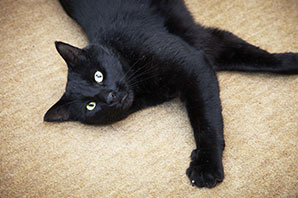
Posted on by Petplan
A common myth that we’ve all heard is that cats have nine lives. But where does this fiction of feline immortality actually come from? And why is it the number nine? Petplan unravels the myth of a cat’s nine lives, exploring how the phrase came about and giving you the real facts behind it!
Five things you should never feed your dog
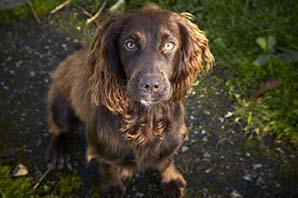
Posted on by Petplan
It's hard to resist those big brown eyes staring up at you, but can a little reward from the table really be that bad for your dog? Well, that depends on what it is and what's in it. Some foods are just incredibly bad for our furry friends and can lead to all sorts of health problems. Being a good parent for your fur baby is knowing when to say, 'No'.
How to keep your pets warm in winter
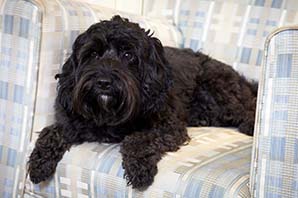
Posted on by Petplan
During winter, temperature drops, weather worsens and keeping warm becomes top of our agenda. Hot chocolate, blankets, getting warm by the fire – you name it, we’ll do anything to keep toasty during the chilly months! However, how do you keep your pets warm in the winter? Despite their fur coats which act as a layer of warmth and protection, all pets can suffer from the cold. From hypothermia to frostbite, your pets are at risk during the winter. Petplan looks at ways to keep your dogs, cats and rabbits warm in the cold weather and why it’s so important…
Stories from the surgery: keeping your pets safe from Christmas hazards
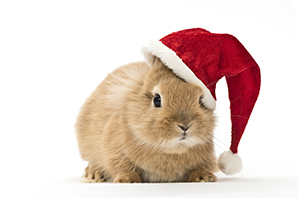
Posted on by Petplan
Each month Petplan vet Brian Faulkner looks at some of the issues he comes across in his day-to-day life as a practising vet. On the lead up to Christmas, Brian shares insights from his surgery, plus helpful tips to keep the winter months’ fun and safe for pets and their owners. Every year around December we always see a few pets at the surgery with avoidable issues related to the Christmas festivities. Some of the most common visits are from owners whose pets have been injured by decorations or have been fed something unsuitable as a treat. We all want to involve our pets in our celebrations but there are precautions you should be taking before getting carried away with the Christmas excitement and I’m often asked how to strike a balance between a fun and safe Christmas for your pets.
How long should you leave a cat alone for?
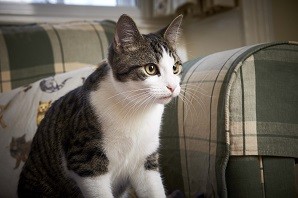
Posted on by Petplan
Cats are solitary and independent animals and for most cat owners, this is an attractive trait when choosing a pet. However, just how independent are they when it comes to heading off on vacation? When booking holidays or planning a business trip, you might be uncertain what exactly to do with your cat. However, Petplan looks at how to ensure a smooth ride for both you and your feline companion…
Rabbit Health - How Do I Care for My Rabbit’s Teeth?
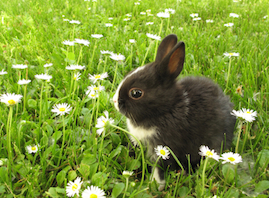
Posted on by Petplan
Whilst our dentists are satisfied with us brushing and flossing our teeth, rabbits have a much more complex dental system that requires regular care and attention. With consistent monitoring and a carefully planned diet, you can ensure that your rabbit’s teeth stay healthy and pain-free. Petplan takes a look at how rabbits’ teeth function, how you can prevent any complications from occurring, and what symptoms to look for if they do…
How much should my dog be sleeping?
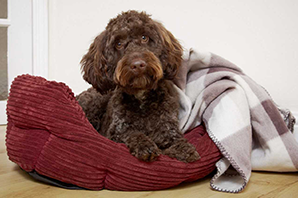
Posted on by Petplan
Unlike humans who generally stay up all day and then sleep for one long stretch at night, dogs spread out their sleep. Dogs can sometimes appear to sleep for days at a time, and you might think they’re just being lazy. Sometimes this can be natural, or a symptom of something else. Petplan looks at how much sleep is considered normal for your dog, and why their sleep cycle is so different to ours…
Why do rabbits eat their own faeces?
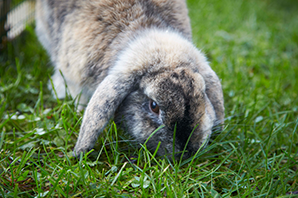
Posted on by Petplan
You may have noticed your rabbit eating their faeces and naturally questioned whether this is normal. However, it’s not just normal, but vital to your rabbit’s health. Petplan explains the process of this second ingestion, and why it’s so important…
Cat Health - What is cat diabetes?
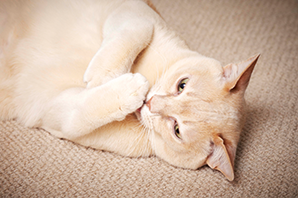
Posted on by Petplan
Diabetes is a common condition in cats often causing serious problems if left untreated. Symptoms overlap with other diseases, making diabetes harder to diagnose. With a healthy lifestyle, the right diet and treatment you can successfully manage the health of your diabetic cat. Petplan takes a look into this well-known condition, giving you signs to be aware of, and treatment options for diabetes in cats…
Is it normal for my cat to snore?
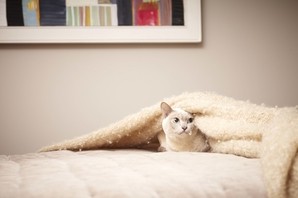
Posted on by Petplan
is it normal for cats to snore It’s no secret that cats love to sleep, they do it often, and they do it best. Many people will be familiar with the sound of their cats gently snoring whilst cuddled up on the couch – but is it actually normal for your cat to snore? Petplan looks at reasons why cats snore, and some of the more common cat health issues associated with snoring…


